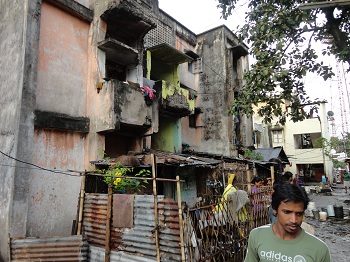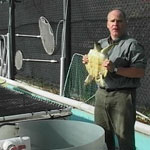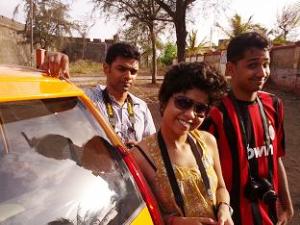Suman Baspore, 28, tries to clean the tiny courtyard in front of her house in their squalid colony in Guwahati city. Both Suman and her husband works as 'safai karmacharis' for the Gauhati Municipal Corporation (GMC). She sits down on a red plastic chair and says, "My two children are not being able to drink clean water, live in a healthy and hygienic environment. Our limited income does not allow us to send them to a good English-medium school." Her neighbour Sunita is rather candid. She adds, "Isn't it an irony that we are the ones who help others lead a clean and hygienic life, but paradoxically we have to live in utterly filthy surroundings?"
They are a hardworking and indispensable, yet a less thought-about and neglected community. What would be our life without them? Who can be their substitutes? Can we sustain without them? These are the queries that certainly come to the minds of those who get acquainted with them, listen to them, and observe them from close quarters in the segregated colonies that they live in the different parts of the city.
They are the safai karmacharis (cleaners) who we see in many public places clearing up the mess. They are a mixed population, consisting of different castes. Most of them are engaged with the collection and disposal of discarded wastes, filth, and human excreta. Such a faction forms a small chunk of the population in the fast-growing Guwahati city, scattered in different localities. Though we are so very aware of their presence in our lives, right from their morning whistle to amass the garbage, gathering rubbish from the huge dustbins by the roadsides, cleaning the hospitals, drains and while saving us from the mess of the inundated septic tanks, we hardly ponder about them. It might be like entering a completely unknown terrain for someone who ventures to discern their ways of life for the first time.
Most of these safai karmacharis are Dalit migrant workers from Punjab, Bihar, Uttar Pradesh, Rajasthan and even parts of South India who came and settled in various parts of the Northeast since the pre-independence days. The safai karamcharis comprise around 10 lakh people, and nearly six lakh are in government service. Yet they do not even get Permanent Resident Certificates though their names figure in the voters list. "They ask for 30 to 40- year-old land patta which none of them possess. People feel if they settle down at some place they will spoil the environment. They have no place to go after retirement. They don't belong anywhere, we cannot even go back to our native lands as we have nothing there," says K.P. Das of the Bharatiya Dalit Sahitya Sabha, Assam.
The colonies were always there and most of us might have come across several times while moving through the vicinity, but never paid attention to. Visiting them in their dwelling places seems to be an utterly different experience. They are simple, easy going people who struggle hard to make their living. It can be well noticed that the interior of their houses are quite clean and organized, opposite to what is observed outside. The lack of drainage system, shortage of latrines and deficiency of proper sewage disposal system has made their surroundings the most unhygienic places to live on. Though they help keep public lavatories clean, they don't even have a pucca latrine for their own use. They also have to procure drinking water which turns out quite an expensive affair for them. Their children frequently fall sick in the unhealthy environment. The children hardly study beyond school level, and those who cross the high school prefer to work in private firms rather than taking up their staple profession. Some of them are even ashamed of what their parents do. There are very less permanent jobs for them in the public sectors, so they are employed temporarily on fixed salary.
However, the arrival of the safai karmacharis in Assam can be traced back to about two hundred years, brought by Britishers as they found it inconvenient to defecate in open fields. It was for their convenience kaccha latrines were made outside the houses. The excretions were deposited in tins, which were put under wholes. The cleaners had to dispose the contents of the tins far away. Such latrines are still there in some places. Gradually, the advent of sanitary latrine somehow reduced the magnitude of their work. When asked if the suction machines which are now used to clean the septic tanks have affected their work prospect, they said that it certainly have impinged on their income. The machines merely extract the water from the tank, but the raw waste has to be disposed by them manually, but they are paid very less for it as the major portion goes to the Municipal Corporation. It is claimed by them that manual scavenging is still prevalent though denied by the authority and no measures have been taken by the Government to modernize the system.
Anil Baspore says that the colony they are living is in a dilapidated condition. Every moment any ensuing disaster is expected. The buildings are on the verge of falling down. The plot of land of the colony was donated by the First Chief minister of Assam Gopinath Bordoloi. Initially, temporary Assam-type houses were made. There was no electricity at that time. After thirty years from that period they were provided electricity. The colony, which is located in the heart of the city, is one of the most disgustingly dirty places. There is no drain, no road and no drinking water. The ratio of the people and the toilets is somewhat bizarre. The total residents of the colony are about eighteen hundred and the number of toilets is six. The most pathetic part of their existence is that they have to consume alcohol and drugs to do the filthy job. Such addiction reduces their longevity and the male population dies very young. It is for that reason that the women population in their community is more than men. The children also, at a very young age, get addicted to drinking as they are tempted towards earning money. Irrespective of such a grim scenario, a few have been able to uplift themselves, acquiring high official positions in the state Government. But such cases are very rare.
Earlier this year, the government of India's flagship sanitation intervention, Total Sanitation Campaign, was rechristened as Nirmal Bharat Abhiyan (NBA). According to a latest UN report, India might not be able to meet its Millennium Development Goals (MDGs) on sanitation by 2015, though the government has claimed to have achieved the target for drinking water by providing 84 per cent of its rural population with access to improved sources of water.
An official of the Rashtriya Safai Majdoor Congress (on conditions of anonymity) laments the fact that since sixty years the pace of growth and improvement of this community in Assam is insignificant. He has been instrumental in bringing the funds for the development of their colonies, but those are not released to be utilized by the Guwahati Municipal Corporation. The houses that are already made with the central funds are provided them as quarters, charging rent from them. The rooms of the quarters are of the size 8'8 or 6'7, very inconvenient to dwell in. He says that it is a failure in terms of the Government as they have not yet been able to form a separate development council for the community. A memorandum has already been submitted and unless and until it is formed, not much improvement can be possible. "Though we are a tiny community, we are an integral part of the political and social set-up of the place. This is our homeland as we have nothing to do with the place from where our ancestors arrived," he adds. They are hopeful that one day their lives will change and their children will be able to look upto a bright future.

.jpg)





































